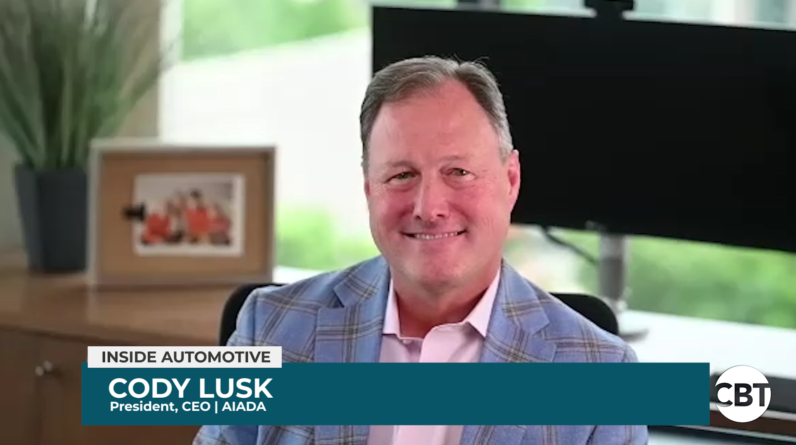
While politics may often seem irrelevant to auto dealers, retailers need to be aware of the conversations taking place in Washington, DC, as even small decisions could have far-reaching effects on the automobile industry. In this episode of Inside Automotive, CBT News anchor Jim Fitzpatrick joins Cody Lusk, president and CEO of the International Automobile Dealers Association of the United Statesto learn from his bird’s eye view of the nation’s capital.
The potential consequences of political gridlock can affect car dealerships as much as any business, but government decisions on electric vehicle policy are of particular importance to the auto industry. The Environmental Protection Agency (EPA) plans to require 67% of all vehicle sales to be electric by 2035, a rule that House Republicans are trying to avoid that. While retailers mostly agree that the internal combustion engine’s days are numbered, they are more concerned that demand, affordability, infrastructure and availability will not expand in time to meet the guidelines of the EPA. “… It’s going to be difficult to get to the numbers … on the timeline that many of these state governments are pushing,” Lusk says.
Auto dealers are also concerned about the security of the franchise system, as OEMs often seem willing to replace third-party retailers with their own in-house sales departments. Auto industry executives often have better access to state and federal politicians than local companies and have influenced the rules in their favor. However, Lusk believes that the past few years have shed light on the strengths that dealerships bring to the table, as well as the weaknesses associated with direct sales models. Store owners have proven adept at reaching out to shoppers, even during difficult times like the COVID pandemic.
Car dealerships’ prowess in customer service is clearly reflected in the inexplicably high sales rate of recent years, numbers that should be impossible given the economic headwinds. Meanwhile, automakers with their own sales programs have struggled to build a consumer base from scratch, without the expertise of dealerships. “Outside of Tesla, those who have [used direct sales] they’re not doing so well… Rivian is expected, but you look at someone like Lucid who spent a billion dollars to sell a thousand vehicles, that’s not a recipe for success,” he remarks.
For auto dealers looking to support their fellow shops, Lusk encourages them to engage with their communities. The role that retailers play in supporting local trade, charity and education is vital not only to the economy but to society itself. He notes that many retailers are hesitant to talk about their good deeds in public, even though doing so attracts support from consumers, government officials and OEM executives. “[If you] You’re making an innovation in a new facility, you invite your member of congress, you invite your staff,” says Lusk. “[Dealers] they’re investing millions of dollars in their facilities, in their communities, and people need to understand the value they bring.”
[ad_2]
Source link





